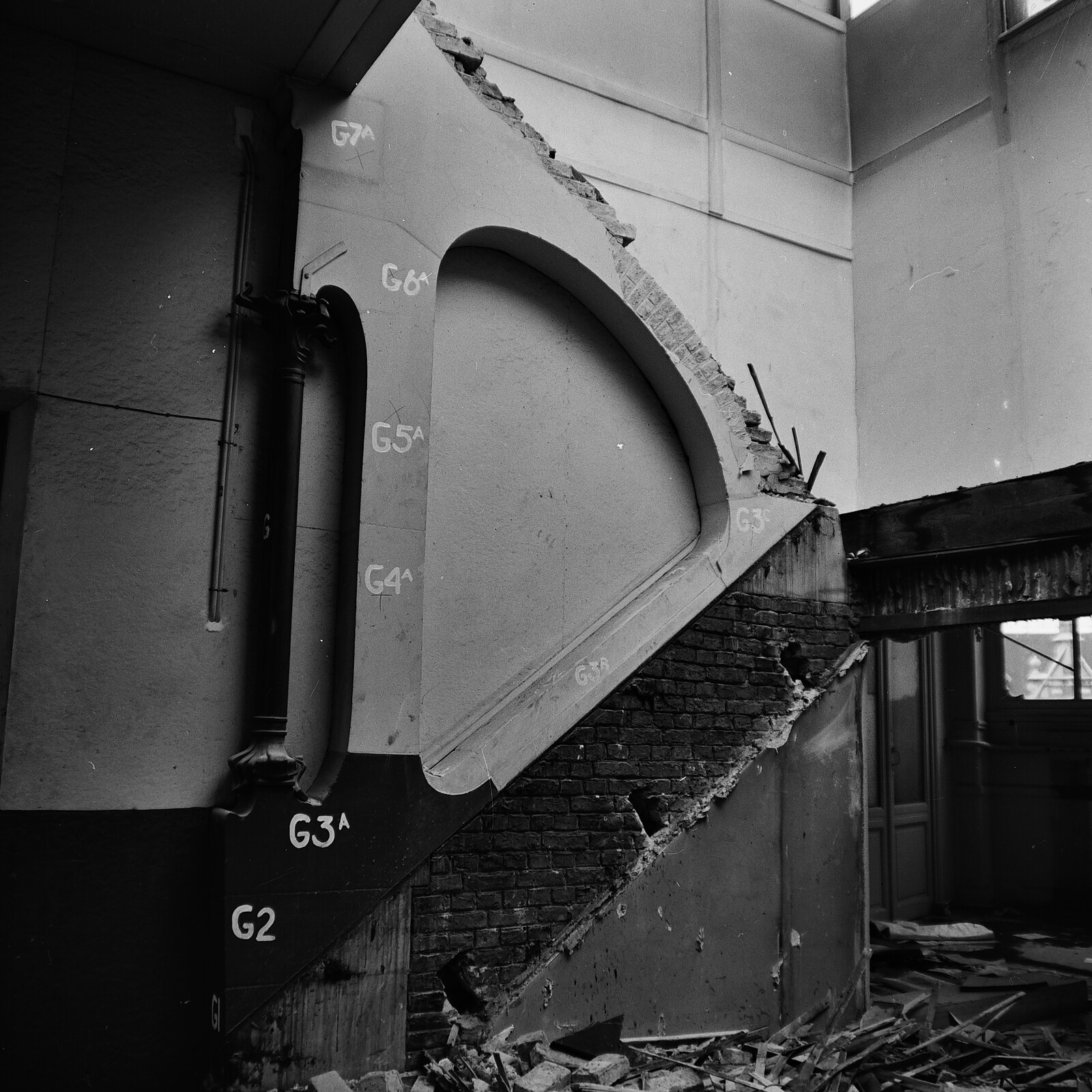Submission deadline: January 17, 2025
“Provenance” is a special issue guest-edited by Alena Rieger and Simon Mitchell, with Mari Lending (participants and director of the research project Provenance Projected. Architecture Past and Future in the Era of Circularity, The Oslo School of Architecture and Design). Submissions for contributions are now being accepted through January 17, 2025. Future Anterior approaches historic preservation from a position of critical inquiry, rigorous scholarship, and theoretical analysis. It is an important international forum for the critical examination of historic preservation, spurring challenges of its assumptions, goals, methods, and results. Future Anterior is a journal of Columbia University Graduate School of Architecture and Preservation that is published twice a year by the University of Minnesota Press.
Buildings are unruly and ever-changing entities. They consist of materials with different life expectancies, their purpose might be outmoded, and they cannot (and should not) be protected to the same extent as artworks or ancient artifacts. This special issue of Future Anterior deals with buildings not as static objects with fixed boundaries, but as flexible, networked, and co-authored entities with rich social biographies and complex afterlives.
While provenance traditionally documents the chronological history of objects in circulation, the guest editors of this issue propose to transpose the eighteenth-century concept from discourses on art, archaeology, and ethnographica into architecture. Provenance typically implies that the integrity of an artifact relies on endurance, even permanence. But no object lasts forever. Buildings are a nexus of cultural, material, social, technical, geopolitical practices, and varied interests. Buildings can be referenced, replicated, adapted, moved, destroyed, or fragmented; fragments might take on new lives as collected objects, (down-cycled) material, or (up-cycled) spolia.
This issue will theorize and demonstrate a new operative field that considers how architecture, fragments, and building materials are distributed, appropriated, altered, reinvented and evaluated according to various settings, ideals and ethics. The guest editors encourage the reconsideration of core cultural and aesthetic concepts such as: origins, authorship, ownership, legitimacy, copyright, authenticity, authentication, patina, collective memory, crises, uses, and abuses. The guest editors also aim to recharge the temporality of the concept: architectural provenance can be a dynamic phenomenon, a forward-bound, creative instrument for change, applicable to understanding lost, present, and future potentials of buildings. Future Anterior invites contributions that consider architectural provenance within a circular economy and re-examine topics spanning from material procurement and real estate to historical reconceptualization and practical transformation work.
Topics to explore can include, but are not limited to historical or contemporary processes of construction or adaptation; the provenance of an idea or material; reflections on the aesthetic traditions of provenance in regard to architecture, monuments, landscapes, real estate, property; provenance as a tool in the validation of particular objects/histories and the rejection of others.
Alena Rieger, Simon Mitchell, and Mari Lending are participants and director of the research project Provenance Projected. Architecture Past and Future in the Era of Circularity, The Oslo School of Architecture and Design.
Future Anterior Journal
Founder and Editor: Jorge Otero-Pailos
Managing Editors: James Oberting & Aaron Luo
Assistant Editors: Elizabeth Kostina & Abbey Francis
Submissions
All submissions and questions about the submission process must be submitted electronically, via email to Future.Anterior.Journal [at] gmail.com. Questions about the Call for Papers can be emailed to the guest editors: Alena Beth Rieger: alena.beth.rieger [at] aho.no / Simon Mitchell: simon.mitchell [at] aho.no
Submission requirements
(1) Abstract (200 words). (2) Manuscript (4,000 words, excluding endnotes). (3) Illustrations/images, maximum of 7. (4) Captions for illustrations/images. (5) Illustration/image copyright information. (6) Author biography (100 words).
Formatting requirements
Articles should be no more than 4,000 words (excluding endnotes) with up to seven illustrations. Text and citations must be formatted in accordance with the Chicago Manual of Style, 17th Edition. Citations must be formatted as endnotes. All articles must be submitted in English, and spelling should follow American convention. A brief abstract (200 words) and author biography (around 100 words) must accompany the submission, but in a separate file to preserve the double-blind peer review process. References to the identity of the author must be removed from the manuscript before submission. All text files must be saved as Microsoft Word or RTF format.
Figures should be numbered clearly in the text, after the paragraph in which they are referenced. Image captions and credits must be included with submissions. It is the responsibility of the author to secure permissions for image use and pay any reproduction fees. Images must be sent as TIFF files with a resolution of at least 300 dpi at 8 by 9 inch print size. Acceptance or rejection of submissions is at the discretion of the Editorial Staff. Please do not send original materials, as submissions will not be returned.


